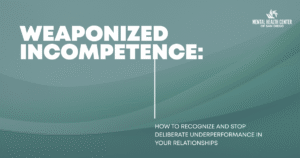Anger in the aftermath of trauma is a labyrinth of emotions, often misunderstood and mishandled. The experience of trauma, whether it stems from personal loss, violence, or the horrors of war, leaves a deep imprint on the psyche, manifesting as anger—a natural, yet complex response. This post aims to explore the multifaceted nature of anger following trauma, offering insights and strategies for individuals grappling with this challenging emotion.
The Nature of Anger Post-Trauma
Mental Health Center of San Diego
The Biological Response
Anger can be seen as a residual effect of the fight or flight response, a basic survival instinct that kicks in during moments of danger. This instinctual response can leave individuals in a state of hyperarousal long after the threat has passed, transforming ordinary frustrations into sources of intense anger.
Anger as a Shield
For many, anger serves as a protective barrier against feelings of helplessness and loss of control. It is a common reaction to situations perceived as unfair or where one has been victimized. Especially in cases of betrayal or exploitation, anger can feel justified and becomes a means of survival.
The Link to PTSD
Individuals with PTSD may find their response to stress stuck in survival mode, leading to a perpetual state of irritability and anger. This heightened state of arousal not only affects personal and professional relationships but also reinforces a cycle of stress and aggression.
Managing Anger: Strategies for Healing
Mental Health Center of San Diego
Awareness and Acceptance
The first step in dealing with post-trauma anger is acknowledging its presence and understanding its roots. Recognizing that anger can mask deeper emotions such as sadness or fear is crucial. Acceptance offers a foundation for exploring healthier ways to cope.
Breathing and Body Awareness
Techniques like the AWE method, which involves mindful attention, waiting, and a long exhale, can significantly reduce anger and anxiety. Such practices, alongside other forms of exercise, help in regaining body control and diminishing the physiological arousal associated with anger.
Connecting with Others
Sharing experiences with those who have faced similar struggles can be immensely therapeutic. Groups and communities provide a sense of belonging and understanding, lightening the burden of self-blame and helplessness. Through connection, individuals find solace and perspective, paving the way for recovery.
Seeking Professional Help
For those deeply entangled in anger’s grip, professional guidance can be a lifeline. Therapists specialized in dealing with trauma can offer strategies and support tailored to individual needs, facilitating a journey towards healing.
Mental Health Center of San Diego
In Conclusion: A Path Forward
The journey through post-trauma anger is deeply personal, varying greatly from one individual to another. Yet, understanding the nature of this anger, recognizing its impact, and employing strategies for management can lead to profound growth and healing. As we navigate this challenging path, it’s important to remember: you are not alone, and with the right tools and support, transformation is possible.









